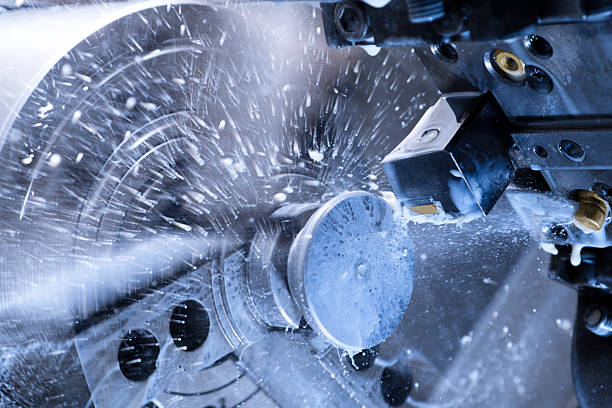How to Become a CNC Operator
How to become a CNC operator? This question is becoming increasingly relevant as the demand for skilled professionals in the manufacturing industry grows. CNC operators play an essential role in modern manufacturing by operating machines that perform precision cuts and movements to produce a variety of products. Becoming a CNC operator can be an excellent career path for those interested in machinery, manufacturing, and technical skills. In this guide, we’ll break down the steps you need to take to become a CNC operator, the qualifications required, and what kind of opportunities are available in this exciting field.
Understanding CNC and CNC Machines
1. What is CNC?
CNC stands for Computer Numerical Control, a technology used to control machines like lathes, mills, and routers by interpreting computer-generated code. This technology allows for high-precision cutting and shaping of different materials, making CNC machines critical to manufacturing industries such as aerospace, automotive, and woodworking.
- Automation: CNC technology brings automation to manufacturing, reducing the need for manual interventions and enhancing precision.
- Efficiency: The efficiency and accuracy of CNC machining mean that complex parts can be produced quickly with minimal human error.
Learn more about our selection of CNC Spindle Motors to see how these components play a crucial role in CNC operations.
2. Understanding CNC Machines
CNC machines come in various types, including CNC lathes, CNC mills, and CNC routers. Each type of machine is used for specific applications, but they all operate under the same principle of being controlled by a computer to carry out precise movements.
- CNC Lathes: Used for turning operations, such as creating cylindrical parts like shafts and bushings.
- CNC Mills: Commonly used for more intricate operations, including milling and drilling.
- CNC Routers: Typically used for cutting wood, plastics, and softer metals.
Explore CNC Router Spindles that help maximize the efficiency of different types of CNC machines.
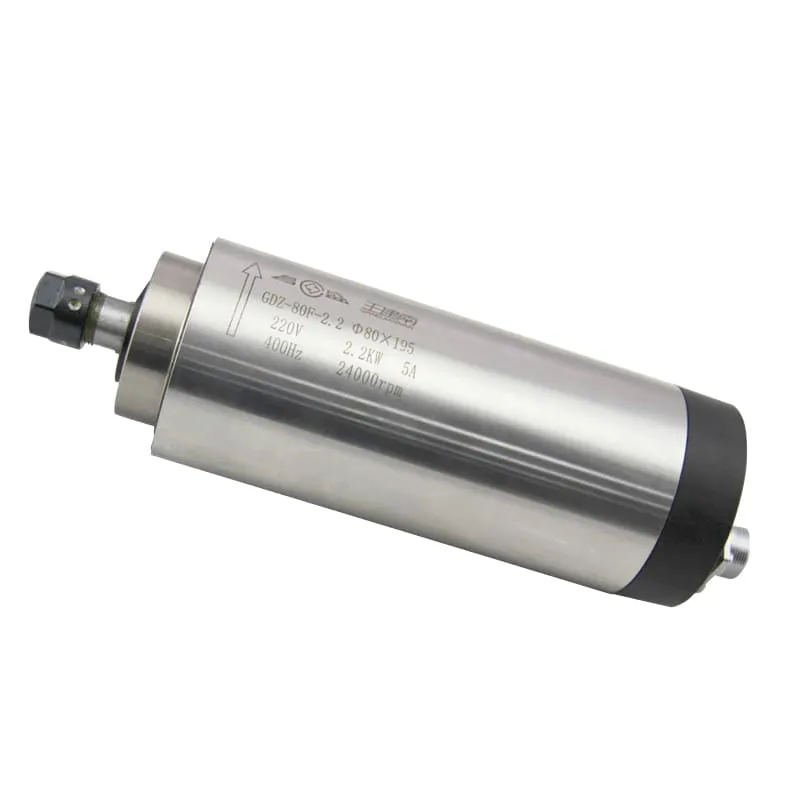
The Role of a CNC Operator
1. What Does a CNC Operator Do?
A CNC operator is responsible for running CNC machines to produce precision components. This involves setting up the machine, running the programs, and ensuring the quality of the parts being produced.
- Machine Setup: Setting up involves mounting tools, loading materials, and configuring the machine according to specifications.
- Operation: The operator runs the machine, monitors its progress, and makes adjustments as needed.
- Quality Control: Ensuring that the parts produced meet the quality standards by inspecting them using measurement tools like calipers and micrometers.
Discover our 1.5KW ER11 Round Air-Cooled Spindle that is perfect for CNC operations requiring precision and reliability.
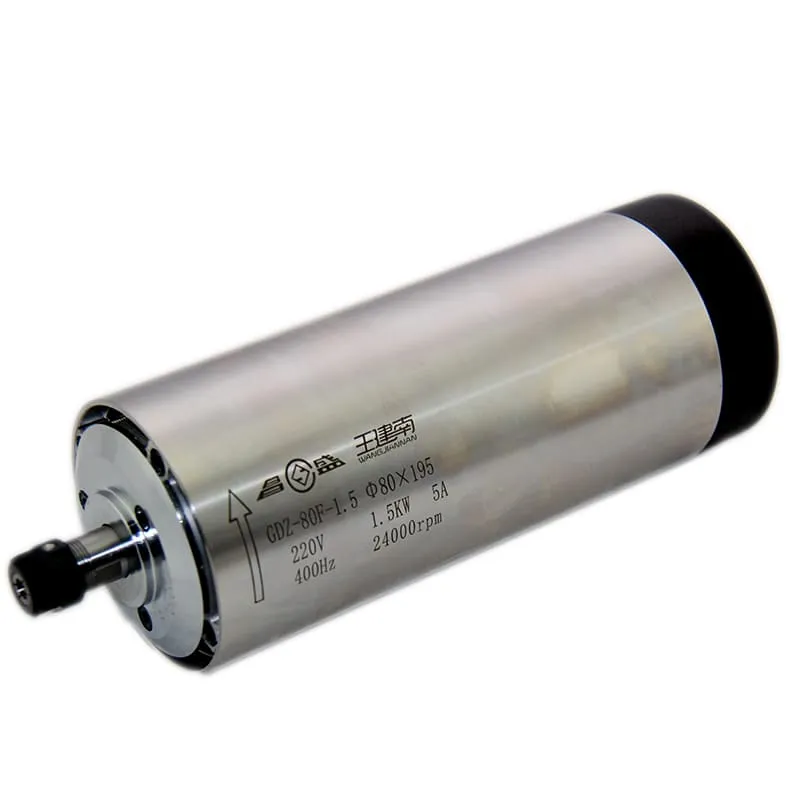
2. Key Skills Required
To excel as a CNC operator, you need a combination of technical skills, attention to detail, and mechanical aptitude. Some of the most important skills include:
- Reading Blueprints: The ability to read and interpret technical drawings and blueprints.
- Basic Programming: Understanding how to input or modify G-code that directs the CNC machine’s actions.
- Mechanical Knowledge: Familiarity with machine tools, basic maintenance, and how to troubleshoot minor issues.
Learn more about our high-performance CNC Router Spindles that support efficient CNC operations.
Steps to Become a CNC Operator
1. Get a High School Diploma or Equivalent
The first step to becoming a CNC operator is to obtain a high school diploma or GED. High school courses in mathematics, physics, mechanics, and computer science are especially helpful for this career path.
- Mathematics: Basic math, including algebra and geometry, is essential as CNC programming relies heavily on these principles.
- Shop Classes: Courses that offer hands-on experience with tools and machinery can be advantageous.
2. Obtain Formal Training
While some companies offer on-the-job training, it’s beneficial to complete a formal training program. Many community colleges and vocational schools offer CNC machining programs that provide both theoretical and hands-on training.
- Vocational Programs: These typically last from a few months to a year and provide hands-on training in using CNC machines.
- Associate Degrees: Some schools offer Associate Degrees in Manufacturing Technology or Precision Machining, which cover more in-depth topics like G-code programming and advanced CNC operations.
3. Get Certified
Certification is not always required, but it can make you a more competitive candidate for CNC operator jobs. Certifications from bodies like the National Institute for Metalworking Skills (NIMS) or the American Society for Mechanical Engineers (ASME) indicate a solid understanding of CNC operations.
- NIMS Certification: A highly recognized certification that shows proficiency in CNC operation and machining skills.
- Manufacturer Training: Some equipment manufacturers offer specific training programs and certifications to teach you how to operate their machines.
Consider using a 2.2KW ER20 Air-Cooled Spindle to enhance the capabilities of your CNC machinery.
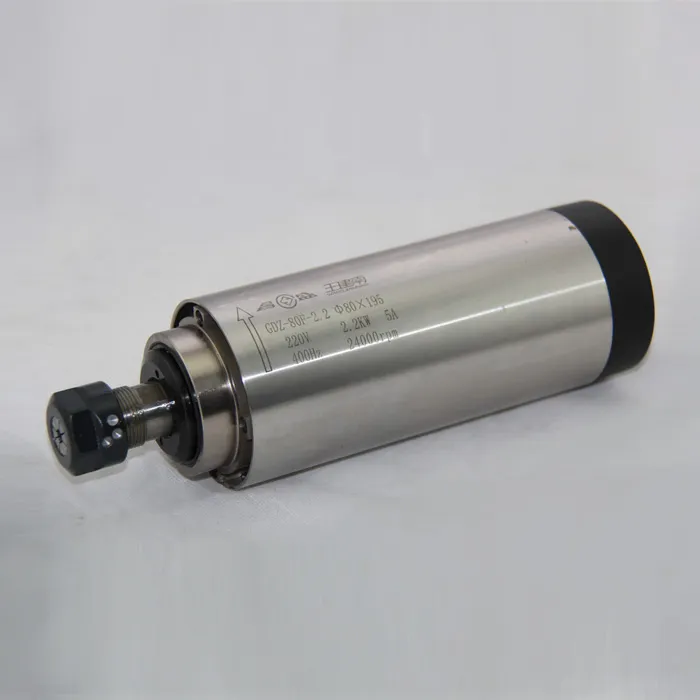
Gaining Practical Experience
1. Apprenticeships and On-the-Job Training
Many aspiring CNC operators benefit from apprenticeships or on-the-job training. This allows you to gain practical experience under the supervision of an experienced CNC machinist.
- Apprenticeships: These typically last 1-2 years and offer a mix of classroom instruction and hands-on training. They are an excellent way to learn the nuances of machine operation.
- On-the-Job Training: Some companies offer direct on-the-job training, where you learn to operate CNC machines by observing experienced machinists.
2. Learning CNC Programming
While CNC operators do not always need advanced programming skills, having a basic understanding of G-code is beneficial. G-code is the language used to tell the CNC machine where and how to move.
- Basic Programming: Programs like Mach3 and Mach4 are used to operate CNC machines. Learning how to use this software can give you an edge in the job market.
- CAD/CAM Software: Operators who can use Computer-Aided Design (CAD) or Computer-Aided Manufacturing (CAM) software have an added advantage, as they can modify or troubleshoot programs.
Explore our 3.5KW ER25 Air-Cooled Spindle that offers exceptional performance in both milling and turning applications.
Advancement Opportunities and Career Growth
1. Becoming a CNC Machinist
A CNC operator can advance their career by becoming a CNC machinist. Machinists are responsible not just for running the machines, but also for programming them and setting up more complex jobs. They require more skills and often have formal training in CNC programming.
- Programming Skills: Machinists are usually adept at writing and editing G-code and may also be proficient in CAD/CAM software.
- Setup and Calibration: They also set up the CNC machines, calibrate tools, and make sure everything is functioning correctly before production starts.
2. Quality Control and Management Roles
With experience, CNC operators may also move into quality control roles, where they ensure that all parts meet the desired specifications.
- Quality Control Technician: These professionals inspect the parts being produced to ensure they meet all specifications and tolerances.
- Supervisor or Manager: Experienced CNC operators with good leadership skills can eventually be promoted to supervisory or managerial roles, overseeing production lines and junior staff.
Check out our range of CNC Router Spindles designed for advanced CNC applications that require precision and reliability.
Tips for Excelling as a CNC Operator
1. Focus on Safety
Safety is a major concern in CNC operations. Always wear the appropriate personal protective equipment (PPE) and be aware of the hazards associated with the machine you’re operating.
- Gloves and Eye Protection: Wearing gloves and safety goggles helps to protect against sharp materials and flying debris.
- Machine Guarding: Always ensure that machine guards are in place to prevent accidental contact with moving parts.
2. Continuous Learning
The technology behind CNC machines is continuously evolving. Keeping up-to-date with the latest developments in machine technology, software updates, and industry trends will help you stay ahead in your career.
- Online Courses: Websites like Coursera and Udemy offer CNC machining courses that can help you learn new skills at your own pace.
- Certifications and Workshops: Regularly attending workshops and earning new certifications will make you a more attractive candidate for employers.
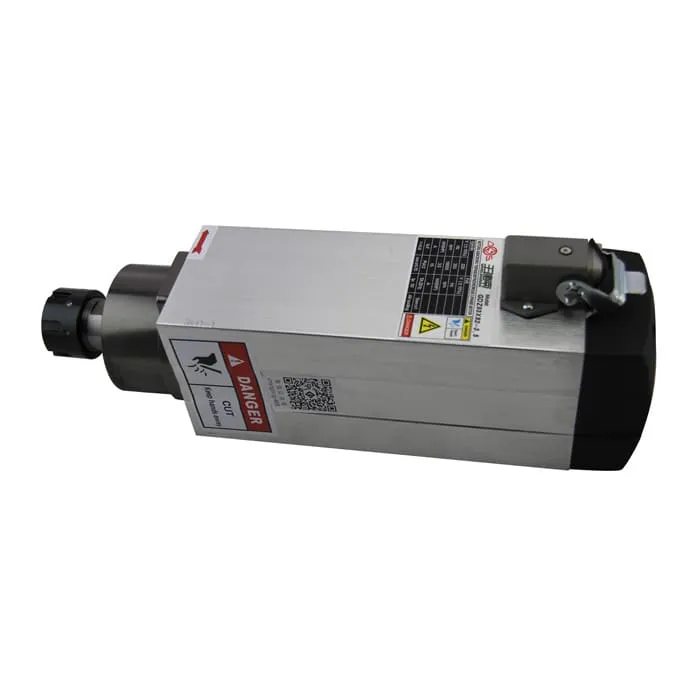
Discover our 3.5KW ER25 Air-Cooled Spindle for robust machining needs.
Conclusion: Charting Your Path to Becoming a CNC Operator
How to become a CNC operator is a journey that involves both formal education and practical experience. The role of a CNC operator is dynamic, involving skills in machine setup, operation, and quality control. With the right training and a commitment to continuous learning, you can advance to higher positions like CNC machinist, quality control technician, or even a supervisory role in manufacturing. The manufacturing industry continues to grow, and skilled CNC operators are always in demand. Start your journey today, and explore how you can shape the world one part at a time.
For more resources to enhance your CNC capabilities, check out our CNC spindle motors for reliable and efficient CNC operations.
FAQs
1. What qualifications do I need to become a CNC operator?
You need a high school diploma or equivalent, along with some formal training in CNC machining, which can be obtained through a vocational program or community college.
2. Is certification necessary to become a CNC operator?
While not mandatory, certifications like those from NIMS can make you a more attractive candidate and improve your chances of getting hired.
3. What are the career growth opportunities for a CNC operator?
You can advance to roles like CNC machinist, quality control technician, or even a production supervisor as you gain more experience and skills.
4. Do I need programming skills to become a CNC operator?
Basic understanding of G-code and CNC software like Mach3 can be very helpful, though you may learn these skills on the job or during training.
5. What kind of safety precautions should CNC operators follow?
Always wear PPE like gloves and goggles, follow proper machine guarding procedures, and ensure that soft limits are set on CNC machines to prevent over-travel.

